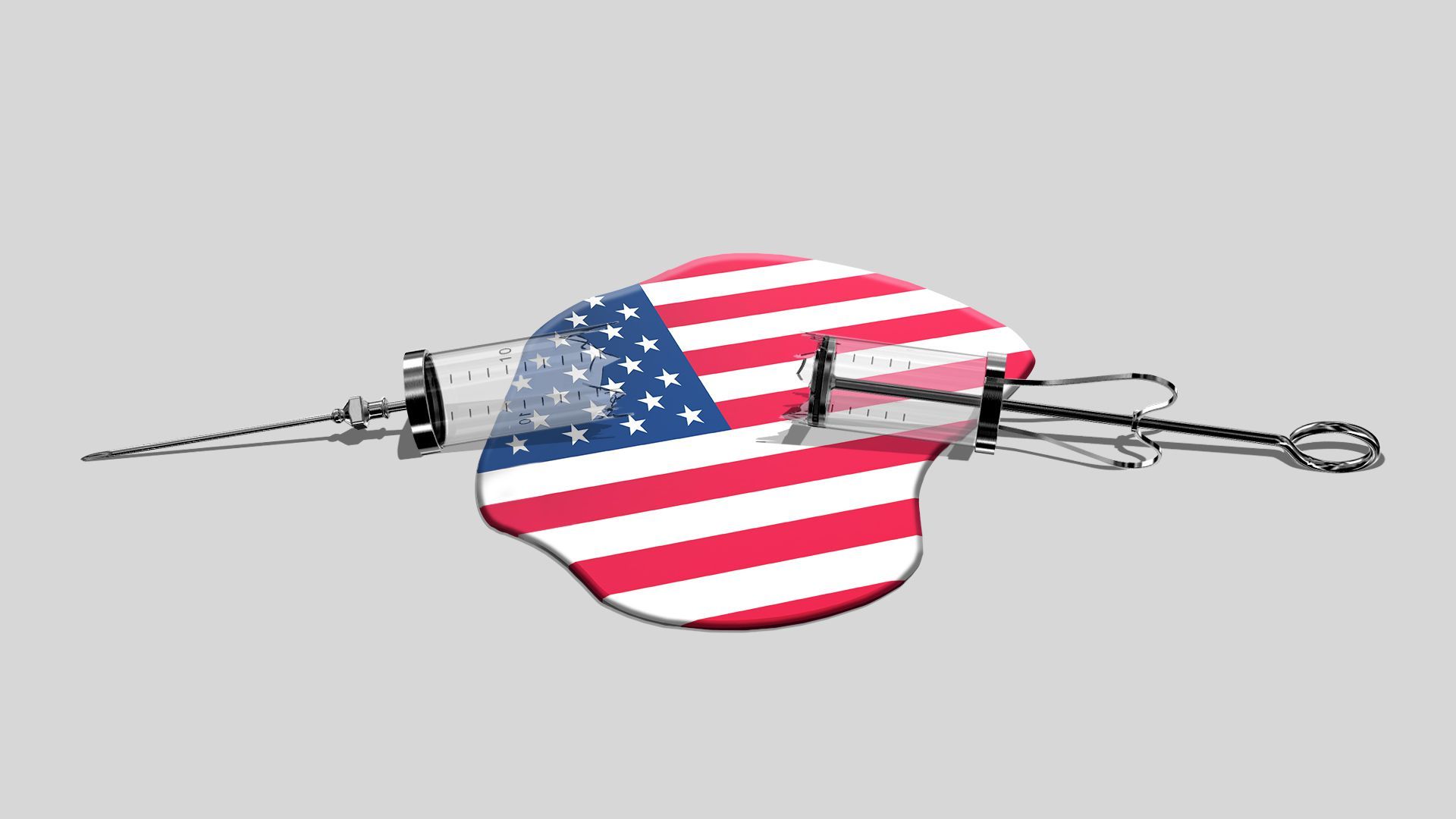The next phase of America's coronavirus failure has begun
Add Axios as your preferred source to
see more of our stories on Google.

Illustration: Aïda Amer/Axios
The evidence is mounting that America is steamrolling toward a nightmarish failure to control the coronavirus.
Where it stands: We made a lot of mistakes at the beginning, and despite a month of extreme social distancing to try to hit "reset," a hurried reopening now raises the risk that we'll soon be right back where we started.
Driving the news: The Trump administration is in "preliminary discussions" to wind down its coronavirus task force, possibly in early June, Vice President Mike Pence told reporters yesterday.
- "I think we are looking at phase two, and we're looking at other phases," Trump said.
- The formal existence of a task force isn't necessarily going to make or break the coronavirus response, but its dissolution is yet another sign that the administration is ready to move on — despite all of the indications that we're not prepared.
What we're watching: The U.S. is still seeing around 30,000 new coronavirus cases a day — and those are just the ones that we're catching because we are still not testing enough people.
- Even with a robust contact tracing workforce, which we don't have, tracking down the interactions of 30,000 people a day would be an impossible task.
- And we have no system in place for isolating those people to prevent them from infecting their family members, co-workers or other contacts.
- Once we lift social distancing measures and people start interacting with one another again, the number of cases will inevitably spike, making containment even more impossible.
We don’t have a treatment or a vaccine, and we're about to loosen the reins on a virus whose reach, symptoms and long-term effects we are still learning.
Yes, but: Some cities and states have been more proactive in building up their public health infrastructure and have said they’ll continue with social distancing until their caseloads indicate it’s safe to begin returning to normal.
- Places like New York and San Francisco, despite being early hotspots, may end up better off because of their public health systems and prolonged social distancing.
The bottom line: “We may nationally be in a nightmare, but it’s going to be much worse in some places than others," Harvard's Ashish Jha told me.
